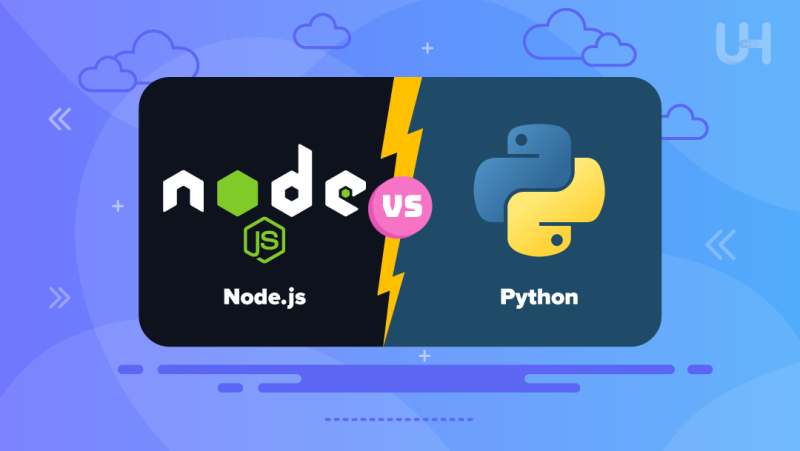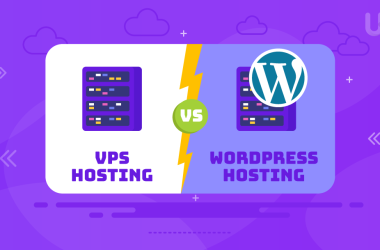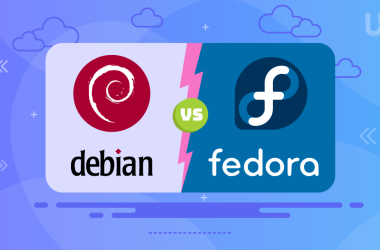Selecting the right technology for the backend is critical to the project’s success in modern web application development. The two strong players, Node.js vs Python, have both shone. Node.js has shone brightly due to its brilliant ability to perform asynchronous I/O operations, a must for real-time applications. Python has attracted developers owing to its versatility and elegance.
This comprehensive blog will compare Node.js vs Python regarding features, advantages, and use cases. The readers will dissect strengths and weaknesses, gaining insights to judge and make project choices. This article will guide the reader according to the project’s needs if one uses Node.js for real-time or with Python for versatility.
What is Node.js?
Node.js has played a significant role in modern web development and has revolutionized how developers think about their back-end architecture. It has also been instrumental in transforming traditional web application development methods. Thanks to its innovative characteristics, Node.js is now being built as the top platform for developing potent, dynamic, and scalable web applications.
Node.js eases dealing with asynchronous operations, hence being real-time responsive for today’s dynamic online experiences. By diving further into its functionality, we can see why it became the top answer for developers who had to implement robust and exceptional web solutions. Also, most people think that Node.js is a framework of Javascript, but in reality, it is a Javascript runtime environment.
Key Features and Advantages
Following are a few features and advantages of Node.js:
- Asynchronous I/O Handling: Node.js effectively handles asynchronous I/O operations using V8, the Chrome JavaScript engine.
- Event-Driven Architecture: The software is written with an event-driven architecture, ensuring high performance and scalability by seamlessly handling concurrent connections.
- Real-time Responsiveness: This feature allows Node.js developers to develop real-time responsive applications crucial for dynamic and interactive experiences.
- Efficient Resource Utilization: Node.js is designed for a single-thread model with non-blocking I/O to use every resource effectively, enabling it to handle many simultaneous operations effectively.
- Energetic ecosystem: The Node.js ecosystem is vibrant, with modules and libraries offering developers a rich toolkit for developing different applications.
Use Cases and Popular Applications
Discover critical applications and examples showcasing Node.js adoption:
- Chat Applications: Real-time updates can be quickly sent because the sending feature has made Node.js most liked and used.
- Streaming Services: Using Node.js in platforms like Netflix guarantees a user the possibility of a non-stop streaming experience. It enables these platforms to provide global users with uninterrupted playback.
- Online Gaming Portals: Node.js provides the reactivity and scalability that were lacking in most online game sites in the past because it allows interaction in real-time.
- Notable Examples: Some well-known applications are Netflix, PayPal, and LinkedIn, which use Node.js to ensure a seamless user experience by the sophistication and intensity of the environment.
What is Python?

Python has become a versatile and elegant language. It is very readable and expressive because of its outstanding readability and expressiveness. Python development is much faster and hassle-free due to clean syntax and a direct structure made accessible to developers of any grade. Python developers have a whole ecosystem of packages and frameworks to deliver complex web applications fast.
Key Features and Advantages
Python’s clean syntax facilitates rapid development, while its extensive standard library and frameworks like Django empower versatile application building. Here are some features and advantages of Python:
- Clean and Readable Syntax: Python’s syntax allows maximum readability, which is vital in achieving rapid development and simplified maintenance workflows.
- Extensive Standard Library: Python has a large standard library that contains several prebuilt modules to support various activities.
- Robust Frameworks: Django and Flask come with powerful frameworks with built-in tools that allow developers to easily create powerful, versatile, and feature-rich applications.
- Community support: Python has a vast, robust community; therefore, there will be many available resources, documentation, and developers supporting you from anywhere in the world.
- Versatility: Python is versatile in web development, data analysis, and artificial intelligence.
Use Cases and Popular Applications
Python’s versatility makes it suitable for diverse applications, ranging from web development and data analysis to artificial intelligence and scientific computing. Exploring Python’s Versatility and Impact Across Industries:
- Wide-Ranging Use Cases: Python has applications in web development, data analysis, artificial intelligence, and scientific computing.
- Industry Acceptance: Major platforms, including Instagram, Spotify, and Dropbox, use Python to create innovative user solutions.
- Web Development: Python frameworks help develop robust and scalable web applications through Django and Flask.
- Data Analysis involves a variety of Python libraries, such as Pandas and NumPy, used for high-level data manipulation and analysis.
- Artificial Intelligence: The simplicity and strong libraries of Python, TensorFlow, and PyTorch further drive the research in artificial intelligence and applications.
Supercharge Your Projects With Premium Hosting!
Ready to take your Python applications to the next level? Look no further than UltaHost. With unrivaled flexibility, unlimited bandwidth, and top-notch performance, our hosting solutions are custom-tailored for Python developers like you. Experience seamless and efficient project execution with Ultahost!
Key Features Comparison of Node.js vs Python
In comparing Node.js and Python, several factors come into play. While Node.js excels in handling concurrent connections and real-time scenarios, Python shines in its readability, extensive libraries, and broader application domains.
Syntax and Language Features
Node.js and Python provide their respective syntax and language features covering numerous development requirements. In Node.js, developers can use the concise JavaScript syntax and its features for asynchronous, event-driven programming. Conversely, Python provides clear and readable syntax and emphasizes easiness of usage and fast development. While Node.js is very powerful in real-time applications, Python is flexible for web development, data analysis, and machine learning, thus preferred in many domains.
Speed and Ease of Use
In this respect, Node.js highlights the need for speed, empowering it with the ultra-fast performance of real-time applications and an exemplary non-blocking I/O model. Node.js is a runtime designed with event-driven architecture at its core, inheriting scalability and efficiency for executing concurrent connections efficiently. Meanwhile, Python has the attributes of simplicity and readability, which advance its ease of use within development workflows. Where Node.js tends to focus more on speed while executing operations asynchronously, its user-friendly Pythonic syntax quickly becomes popular among those requiring rapid prototyping and efficient code maintenance.
Security Considerations
Proper security protocols should be implemented in Node.js and Python to protect applications from various threats. For example, proactive measures such as input validation and encryption should protect against callback issues and module dependencies in Node.js. The Python application will also demand stringent security protocols like input sanitization and regular audits to eliminate security risks, including injection attacks and insecure configurations. Developers can ensure a more secure and resilient application by emphasizing security measures in both environments.
| Feature | Node.js | Python |
| Asynchronous I/O | ✔️ | ❌ |
| Readability | ❌ | ✔️ |
| Scalability | ✔️ | ❌ |
| Versatility | ❌ | ✔️ |
Node.js or Python: Which is Better?
Hence, the choice between Python and Node.js depends on your project’s specific requirements and priorities. In this regard, Node.js takes the lead over Python in terms of real-time functionalities and scalability. In other words, Python is better for projects that emphasize readability, versatility, and ecosystem size.
Decision-Making Process
Consider the following factors when making your decision:
- Project Requirements: Analyze the nature of your application, including its performance demands, real-time capabilities, and needs for scalability.
- Development Team Experience: Evaluate the qualifications and experience of the team members to work comfortably with each technology stack so that the best possible development and support can be done.
- Ecosystem and Community Support: Look for available libraries, frameworks, and community resources to support your project’s goals.
- Long-Term Viability: Long-term support and evolution of the chosen technology stack and the realization of possible risks regarding sustainability.
When to Choose Hosting Servers For Python and Node.js Applications

- Shared Hosting Servers in Node.js: Node.js shared hosting is ideally recommended for lightweight applications, blogs, or small-scale projects that must have real-time functionality but very few resources on the server. The efficiency and the real-time capabilities cater to handling low-to-medium traffic websites efficiently on shared hosting servers.
- E-commerce Hosting in Python: Python E-Commerce Hosting powers robust e-commerce frameworks with scalability, high security, and a high rate of customizability. Solutions like Django or Flask give you a hosting environment fine-tuned for e-commerce needs. The flexibility of Python combined with robust frameworks guarantees stable performance and allows the creation of scalable, secure online stores.
- Cloud Hosting Server in Python and Node.js: Both languages, including Node.js and Python, can be used for cloud hosting, including fast SSD cloud hosting. This allows them space in terms of scalability, reliability, and flexibility in deploying and managing applications developed.
Conclusion
In conclusion, some compelling features and benefits favor Node.js and Python in modern custom web application development. Consider your project needs, the team’s capacity, and long-term goals, and you will be able to make an informed decision that creates a base for a successful product. Either be versatile with Python vs Node.js in real-time. The technologies pave the way for innovation in web solutions and making a difference.
Choose Ultahost‘s Node.js hosting service for unparalleled real-time performance and scalability. Empower your web applications with seamless responsiveness and efficient resource utilization. Make the right choice today for a future-proof backend solution that drives innovation and success.
FAQ
What is Node.js known for?
Node.js handles asynchronous I/O operations, making it ideal for real-time applications.
Why choose Python for web development?
Python’s clean syntax and extensive libraries, like Django and Flask, enable rapidly developing versatile web applications.
What factors influence the choice between Node.js and Python?
When selecting the backend technology, consider project requirements, team experience, ecosystem support, and long-term viability.
Can both Node.js and Python be used for cloud hosting?
Both languages are compatible with cloud hosting platforms like AWS, GCP, and Azure for scalable and reliable deployment.
What industries benefit most from Node.js and Python applications?
People prefer Node.js in industries requiring real-time updates, while Python finds applications in web development, data analysis, and artificial intelligence.








